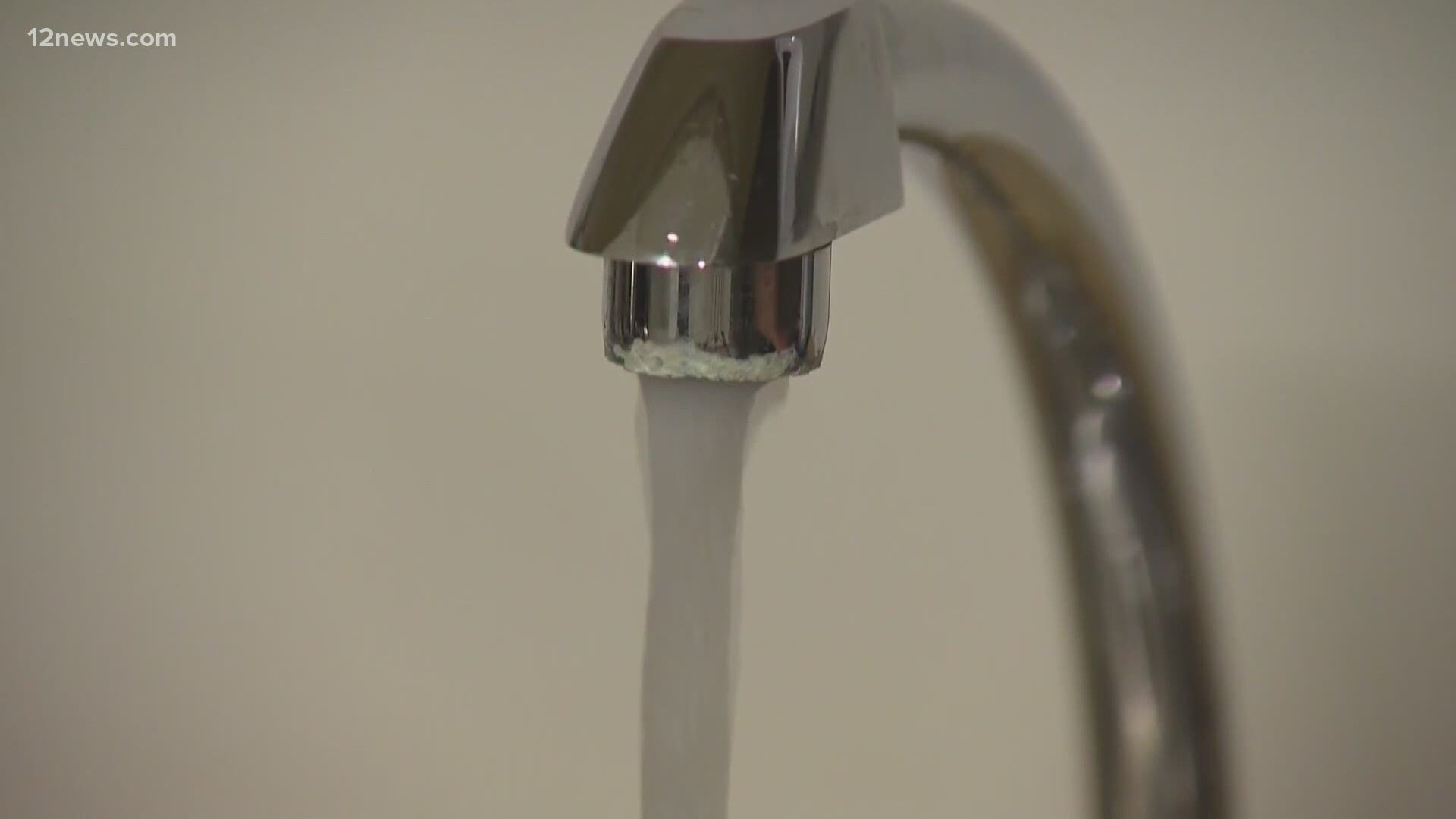ARIZONA, USA — Scammers have long made a living off Arizona's scarce water supply.
The state was known nationwide as a hotbed of organized crime and real estate fraud in the 1970s. Swindlers would advertise acres of Arizona land with abundant water, only for the land's new owners to discover they bought a dry patch of desert.
The prevalent practice pushed state lawmakers to produce the Assured Water Supply (AWS) program as part of the Groundwater Management Act of 1980. The program forced homebuilders to guarantee a 100-year water supply in the state's most-populous areas.
The requirement, however, is only for home builds in what Arizona considers "subdivisions." This focus has caused two massive loopholes to open in state water law, which developers have recently taken advantage of to freely pump the state's groundwater.
Half a century later, the fight between groundwater conservation and sprawling development is alive and well in Arizona. A bill moving through the state's legislature is looking to stop that fight once and for all by changing a single definition.
How a subdivision definition caused water law loopholes
Arizona defines a "subdivision" as land divided into six or more lots for the purpose of selling it for residential homes.
The 1980 lawmakers failed to include two modern-day realities when linking the 100-year water supply requirement to the subdivision definition:
- Build-to-rent communities
- "Wildcat" subdivisions
What is the build-to-rent water loophole?
The first loophole reared its head in Casa Grande last May.
An Arizona Department of Water Resources (ADWR) report found all of Pinal County's groundwater is spoken for. This means any new home construction can't use groundwater as proof of a 100-year water supply. New builds would have to find their own source before they're approved to build.
Unless homes are built to rent rather than to sell.
A specific exemption in Arizona's law states that homes with a lease of one year or less are not included as "subdivisions" or "subdivided land," allowing build-to-rent homes to dodge the 100-year water supply requirement.
Casa Grande alone saw around 700 build-to-rent units get final build approval around May, something the city rarely saw before ADWR's report.
A similar report was released for the West Valley area early this year, this time putting future development in the ever-expanding City of Buckeye under threat. Experts believe a similar build-to-rent trend is going to be seen in the West Valley city in the coming months.
"The standard only applies to for-sale housing," Vice President of Legislative Affairs Spencer Kamps of the Home Builders Association of Central Arizona previously told 12News.
"[Other] developments can still mine groundwater and there are no assurances that the well they use will pump for 100 years, nor are there assurances that the well they're using would impact adjacent wells."
PREVIOUS STORIES:
What is the "wildcat" subdivision water loophole?
The second loophole pushed Rio Verde Foothills into the national spotlight.
That's because Arizona law also allows land to be split into five or fewer lots, known locally as "wildcat lots" rather than legally defined subdivisions. Developers can sell these lots without having to provide the usually required assets, like the 100-year water supply, sewer lines and paved roads.
This was and continues to be an issue for the unincorporated community outside of Scottsdale, which allowed homes to be sold to unknowing buyers even after Scottsdale announced it would cut off the community's water supply at the beginning of 2023.
PAST COVERAGE:
How does this new Arizona bill try to close the subdivision-caused groundwater loophole?
A bill that recently passed the Arizona House of Representatives, HB 2445, seemingly fixes both of the loopholes.
An amendment removes the leasehold exemption, essentially eliminating the build-to-rent loophole.
Another amendment specifies that a subdivision will now be considered any area that includes one or more lots, rather than six. This supposedly was included to address the "wildcat" loophole.
"The wildcat subdivision loophole has likely caused just as many headaches as the build-to-rent loophole," said Rep. Christopher Mathis, who created the amendment.
"All residents within AMAs can enjoy the consumer protections and peace of mind provided by the Assured Water Supply program, regardless of where they live."
There are some people who believe that, contrary to Mathis's statement, this legislation does not address the "wildcat" issue.
While the bill does cut down the minimum amount of lots needed for a development to be designated as a subdivision from six to one, it still requires at least six residential homes to be built before the subdivision minimum is met. That means a developer can build five or fewer houses on a single lot without needing to guarantee a century's-worth of water.
Rep. Gail Griffin, chairman of the state's Natural Resources, Energy and Water Committee and main sponsor of the bill, said she brought it forward after she was made aware of the loopholes last year.
"This is a problem we need to address, especially with what all we're doing with water," Griffin said during a recent committee hearing on the bill. "When we're trying to do things right, there's a loophole here that we're trying to close."
The amendment was surprisingly supported by both the Home Builders Association of Central Arizona and the Arizona Municipal Water Users Association, a rare agreement between the two entities which are usually at odds with each other.
"Make note of the date and time that [Spence Kamps] and I are in total agreement on a bill," Barry Aarons joked while representing the water users association at the committee hearing.
The bill was sent to the Arizona Senate for consideration on March 2.
Water Wars
Water levels are dwindling across the Southwest as the megadrought continues. Here's how Arizona and local communities are being affected.

